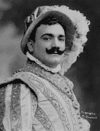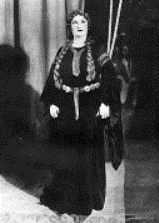Monthly Archives: June 2014
Lend me your ears side
Your Communication Team needs you!
Why not contact the pastoral council or one of the people already on the team? Or send an e-mail to the communications team. To get in touch, just click HERE

A sense of Place side
Lend me your Ears!!

If you click on one of the loudspeaker icons you will be able to listen to Monsignor’s talk on your computer’s loudspeaker or headphones. The talk has been divided up into twelve sections of 3 to 5 minutes each, corresponding to twelve sections of the notes. Of course, Monsignor talked about a lot more than appears in the notes so it’s worth sitting back and just listening.

Cemetery Regulations
Cemetery Regulations
The Parish Pastoral Council and the Graveyard Committees have published the amended and agreed version of Article 29, Paragraph 2 of the Dunhill and Fenor Cemetery Regulations in relation to new grave allocation in the parish. The amended and agreed version is as follows:
- New graves will be offered to all current residents in the geographical area of Dunhill and Fenor.
- New graves will be offered to all who were born here and lived here for a minimum of eight years.
- New graves will be offered to spouses / partners of those in number 2.
- Children of those in number 2 may only be buried in an existing grave.
- The holder of the right to burial may allow anyone else to be buried in their grave.
- Other situations not covered by the above may be referred for a decision to the Council which will
treat each case with compassion.
N.B: The Council referred to at number 6 above consists of:
-
- The Chairperson of the Pastoral Council
- The Chairperson of the relevant Graveyard Committee
- A second member of the relevant Graveyard Committee
- The Priest or Administrator of the Parish.
Their decision will be final.
Graves in our cemeteries cannot be pre-purchased, but will be made available as the need arises.
In the event of a bereavement in a family, contact should be first made to a funeral director who, in turn,
will ensure that the relevant priest and relevant cemetery personnel are contacted.
The two Churches Side

Fenor Choir side
Dunhill Choir Side
Communications Side
What has been achieved?
The Parish Pastoral Council – What Has Been Achieved?
The Dunhill and Fenor Parish Pastoral Council was established in December 2007. Parishioners will, no doubt, want to know what the council has been up to since then so we will attempt to satisfy their curiosity and interest by describing some of its achievements.
Early Days
At the start progress was slow because it was necessary to set up the administrative structure of the council by electing the officers, deciding on the conduct, order, and timing of meetings, and so on. In order to learn more about the role of the pastoral council, six council members attended a workshop on pastoral councils in Clonmel in February 2008. Also, one member was delegated to attend meetings of the St. Otteran’s Pastoral Area, which is the “cluster†of seven local parishes. Members of the council continue to attend training sessions or information seminars as and when they occur.
Parish Newsletters and Parish Notices
The first visible sign of the working of the council was the new Pastoral Newsletter which was edited by Marie Crowley and Mary Murphy. The first edition appeared at Easter 2008 and was followed by further editions at Summer, Autumn, and Christmas. These are still available HERE on this web site. However, the council decided later to replace the quarterly newsletters by the weekly Parish Newsletters which are available HERE.
Baptismal Team
Marie Crowley was largely responsible for putting together the baptismal team. The team members were:
| Susan Cooper Breda Halley Helena Harrington Susan Moore |
Kitty Murphy Pat O’Shea Phil Tyrrell |
The team took part in a training session in St. John’s Pastoral Centre in October 2008 and began working in the parish in January 2009. Breda Halley was the team leader.
Child Protection
Ann Marie Queally and Rita Byrne of this parish were responsible for putting together the Child Protection policy for Dunhill and Fenor. This was presented to parishioners at an open meeting in the Dunhill Enterprise Centre on 14th May 2008 and subsequently forwarded to the bishop for his approval. It is now an important part of the way in which children are cared for and protected while involved in our parish. The agreed policy may be seen HERE on this web site.
Saturday/Sunday Masses
The question of the number and the times of Masses in the parish was a topic for discussion at many pastoral council meetings. In order to hear the views of parishioners, an open parish assembly was held in the Dunhill Educational Centre on 28th October 2008 after which a decision was made to have only one Saturday Vigil Mass which was to alternate every six months between Dunhill and Fenor churches. The change was made on a trial basis to be reviewed after one year. On completion of the trial year, and after considering both the recorded attendances at the Saturday/Sunday Masses and the suggestions of parishioners, the Vigil Mass was left permanently in Fenor Church at the time of 6:30 p.m. The pastoral council continues to keep a watchful eye on Masses and Mass times.
Pastoral Council Constitution
As pastoral councils are properly constituted parish bodies, the Irish bishops require each council to have a constitution. The constitution of our pastoral council was drafted by the council and forwarded to Bishop Lee who gave it his approval in January 2009. The constitution may be viewed HERE.
Pastoral Plan
The diocesan pastoral plan Building In Faith was published towards the end of 2008. By then our pastoral council was a year old and was feeling the need to plan its work rather than deal with whatever matters just happened to arise. A planning session facilitated by Fr. Liam Power and Sr. Antoinette Dilworth was held in the Dunhill Educational Centre over three evenings in January 2009. This resulted in a pastoral plan for the period January 2009 to January 2010. The plan was published in the Parish Newsletter of Summer 2009 and may be viewed HERE.
Parish Census
One of the tasks that emerged from the pastoral plan was the setting up of a list of who lives in the parish and where they live so that collection envelopes, notices, and any other literature may be delivered correctly and efficiently. Several meetings were held with the parish collectors to decide how to gather the information. A computer data base package was purchased to make the recording of the information easier, and much of the information has now been entered into the data base by the parish secretary.
Bereavement Group
Another task from the pastoral plan was the setting up of a bereavement group in the parish. The team members were:
| Maureen Flynn Sharon Hayes Kathleen Murphy |
Kathleen O’Brien Mary Sheehan |
This group was set up in April 2009, underwent training at St. John’s Pastoral Centre later the same month, and offers bereavement support to parishioners.
Youth Programme
Several events were organised, largely by Fr. Murphy, to interest and involve young people. A successful evening of making and eating pancakes was held on Shrove Tuesday 2009 and 2010 with about twenty young people. Also, the Easter ceremonies were particularly marked by the presence and activities of scouts and young parishioners. In June 2009 a pre-exam Mass was celebrated but it was not well attended. The youth pilgrimage that was intended for summer 2009 was cancelled because of the terrible weather.
Web Site
This is another task from the pastoral plan, intended to improve communications within and without the parish. The initial web site design was provided by Maria Murphy and the content of the web pages was provided by the communications team which is a sub-group of the pastoral council. The web site contains many pages with numerous documents that can be downloaded for inspection.
In February 2012 the web site was redesigned by Stephen de Roiste and the content was provided by the communications team. A major feature of the new web site and the catalyst for the new design was the information now provided about the Fenor cemetery. This includes headstone information and grave photographs which were gathered by the graveyard team. The data base created to make this information accessible to the public was also designed by Stephen de Roiste.
In April 2011 the parish Facebook Page went live. The Page is linked to the web site but independent of it. Perhaps the most important aspect of the Page is the way it allows parishioners and any other interested people to join in the life of the parish in ways that were not possible before. The Page is regularly accessed by several hundred people, some from as far away as the UK, the USA, Australia, and Cork. There is a large following in Dublin and a dedicated few who read the Page in Polish. Most of the readers are in the 25 to 45 age group and female readers number nearly twice as many as male readers.
Liturgy Group
Following an information evening attended by Mary Dee of the Diocesan Liturgy Commission, a parish liturgy group was set up. This group has been active in advising the parish administrator on the ceremonies at Christmas, Easter, and St. Patrick’s Day and members of the group participated in the ceremonies. The group has also been involved in processions, graveyard Masses, Eucharistic Adoration, and Benediction during Lent. The members of the group were:
| Georgina Flynn Brendan Gallagher Pat Greene Mary Harney |
Tom O’Neill Ita O’Reilly Pat O’Shea |
Parish Pilgrimages
A parish pilgrimage to Mount Melleray Abbey was organised by the pastoral council for 6th June 2010, the feast of Corpus Christi. The council also organised beautiful weather for the day so that everyone had a good time, even though a good time is not normally the top priority on a pilgrimage. You can read about it and check out the photo gallery HERE.
In June 2011 the parish pilgrimage was to Rome, Italy. You can read about it and check out the photo gallery HERE.
Defribrillators
Information about defribrillators will be published shortly.
What is a Pastoral Council
The Parish Pastoral Council -Â What Is a Parish Pastoral Council?
The following explanation of the role of the pastoral council is taken from Parish Pastoral Councils – A Framework for Developing Diocesan Norms and Parish Guidelines, March 2007, Sections 4.1 and 4.3.
The Parish Pastoral Council is a leadership group through which priests and people work together as partners in furthering the mission of Christ in their own place. It does this through building up a vibrant Christian community that is rooted in baptism and marked by its faith, worship and service.
To fulfil its role the Pastoral Council needs to be a representative body, in which the diversity of the parish community is reflected. It is a means whereby all parishioners can take part in all discussions that relate to the parish and its future development.
The primary ministry of the Parish Pastoral Council is to discern the way forward for the parish at the given time. It does this in the light of the gospel, the teaching of the Church, the ‘signs of the times’ and what the Holy Spirit is saying through the members of the local community.
Processes in which the Parish Pastoral Council is involved include:
Reflection and Planning
In collaboration with the parish community, identifying their needs and the challenges they face, and reflecting in dialogue with them on what needs to be done.
Animation
Enabling the baptised to discover their gifts, in response to the needs and challenges of the parish, and developing these gifts through the provision of training and on-going formation.
Action
Providing structures that will marry the needs and the challenges of the parish with the gifts and resources in the parish and the diocese.
Communication
Ensuring that effective dialogue takes place within the parish, the diocese, and the wider community.
Evaluation
Reviewing the life and activities of the parish so that parishioners might have a sense of a developing dynamic Christian community.
The council’s pastoral interests include church liturgy, baptismal preparation, bereavement support, faith formation, communications within and without the parish, community care, and many others. Council members are not expected to carry out all of these activities themselves, though they may be involved in some of them, but it is their responsibility to empower the individuals and teams of people who do carry them out.
The pastoral council is not responsible for financial matters or for matters relating to parish property. Financial matters are the responsibility of the parish finance council while the parish property committee is responsible for the maintenance and development of parish property such as land, buildings, graveyards, car parks, etc. The pastoral council has an interest in all these matters and receives frequent reports about them but they are not the pastoral council’s responsibility.
The individuals and teams of people who assist the parish administrator maintain direct contact with him on a day-to-day basis. However, the two councils have the responsibility of establishing the teams, where they do not already exist, and of providing any necessary training, advice, assistance, or finance.
Of course, the parish administrator has overall responsibility for all parish matters and the councils and committees are there to advise and assist him.







